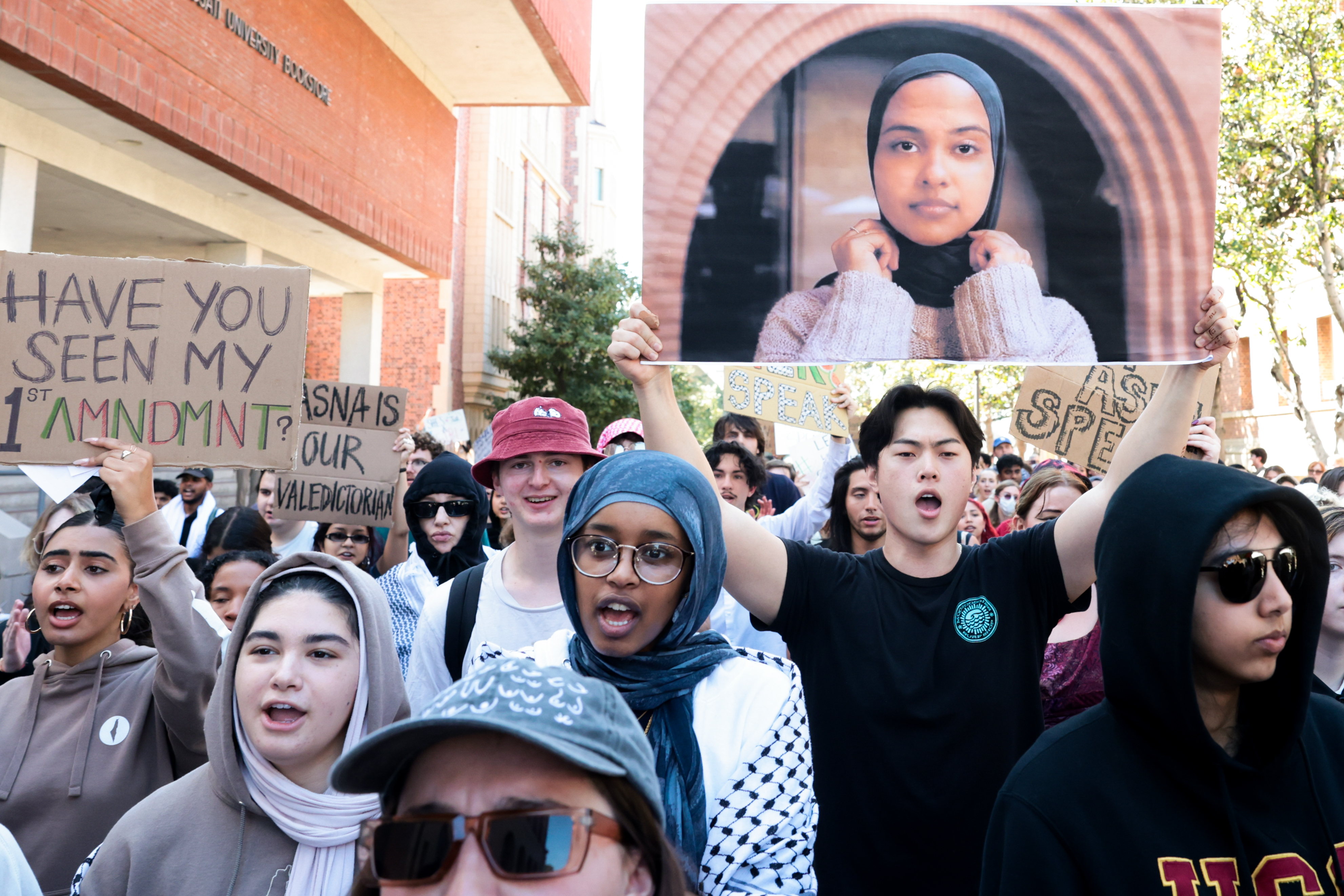Years ago, students at the University of Southern California decided they wanted to help homeless college students, so they opened up a place for them to live in Koreatown called Trojan Shelter. It’s a legacy left behind by some of this year’s graduates that will help homeless students trying to survive.
While it’s difficult to quantify just how many college students are experiencing homelessness, some studies show the number could be around 5 percent of the student body.
“And if we take that number for USC, that would be around 2,000 students,” Abigail Leung, co-founder of Trojan Shelter, said. She graduated from USC on Friday with a degree in public policy.
“We were aware that it was a problem in LA, but I think as we’ve gone on the journey of becoming advocates for the issue, I’ve personally heard a lot of stories,” Leung said.
It was a presentation from a visiting professor that piqued her interest in the subject. That visitor had helped start a homeless shelter for students at UCLA. Leung and three friends wanted to make it happen at USC.
“His presentation was the first time that we learned about the issue of college homelessness and we really wanted to make an impact in some way,” Leung said.
That’s where Trojan Shelter came in. It would become a home in Koreatown that catered to those who had to prioritize tuition over housing. It is entirely run by students – some 60 volunteers – and it isn’t just for Trojans.
U.S. & World
“We’re open to all college students in the LA area because as much as there is a need at USC, there’s a much greater need at Cal State schools and community colleges,” Leung said.
The goal of Trojan Shelter is to help those students transition to permanent housing. Funded through private donations and community foundations, it has opened a world of opportunity for students who need the help, and opened the eyes of those behind the scenes who created it.
“Homelessness and housing insecurity is sometimes made an unnecessarily political issue, but really, I see it as filling people’s basic needs for housing and for food,” Leung said.
While she laughs that she’s currently on the job search, Trojan Shelter will prove more than an accomplishment on Leung’s resume, but also a legacy for the benefit of other students.



